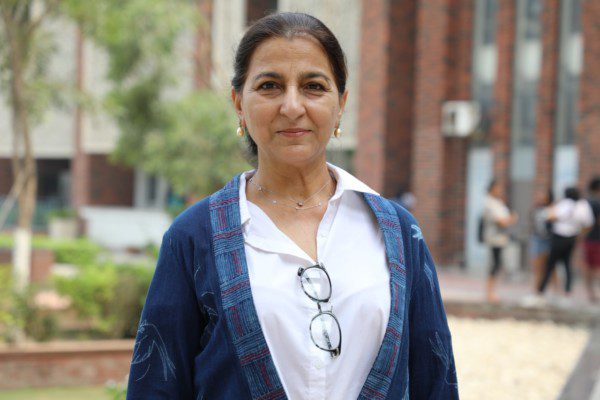Innovations in Behavioral Health Care is a peer-reviewed section of the Mary Christie Quarterly that features breakthrough research and commentary on the emotional and behavioral health of young adults.
Samantha Smith MPH, CHES is a Doctoral Student in the Department of Behavioral and Community Health at University of Maryland School of Public Health. She is also the Associate Director for Health Promotion within Retriever Integrated Health in the Division of Student Affairs at the University of Maryland, Baltimore County.
With the return to campus this fall, much deserved attention has been focused on addressing the behavioral health of students who are just beginning to process the disruption and losses related to COVID-19. While the pandemic has been at the forefront of our minds for the last 18 months, it shared the spotlight with growing U.S. racial and social justice concerns, the reaction to which brings additional concerns about activism and student wellbeing.
My dual role as the Associate Director of Health Promotion and an advanced public health Ph.D. student gives me a unique vantage point to explore the multiple struggles students face during these challenging times. I am especially interested in developing ways to support the wellbeing of the increasing number of students who are direct participants in contemporary social movements. This commentary will describe my current activities related to exploring the relationship between college student activism and behavioral health, focusing on depressive and anxiety-related symptoms, optimism, and student sense of belonging. I will attempt to provoke discussion around the need for more research in this area and stimulate thought regarding how we can better support college students who are civically engaged.
The Changing Nature of Student Activism in the 21st century
From the Civil Rights Movement to #MeToo, college students have a long history of participating in domestic and global social movements. Contemporarily, social movement participation is categorized under the umbrella of civic engagement, which has been defined as political and prosocial contributions to community and society (Wray-Lake et al., 2019). Civic engagement also includes volunteering, activism, voting, and community service (Hope & Jager, 2014; Wray-Lake & Arruda, 2020). In the context of this research, activism is conceptualized as a range of practices that challenge and change existing social institutions (Conner & Rosen, 2016).
Activism today can take many forms, including digital activism, protest participation, signing petitions, or boycotting companies. Activism tactics have grown and expanded their reach through the help of technology and social media. As awareness of longstanding problems such as structural racism, injustices related to police violence among Black communities, immigration, and sexual violence has increased, social media platforms have facilitated coordinated responses and information sharing, especially among young adults and college students. In 2018, the Pew Research Center found that 53% of Americans used social media to engage civically (e.g., posting about a cause, finding information on protests in their area, etc.) (Anderson, Toor, Rainie, & Smith, 2018).
While actions such as activism are vital to addressing social justice issues and can lead to internal and social benefits for participants, the effects on one’s emotional wellbeing are largely unknown but could be significant.
Today’s activism also comes with a significant amount of risk. During 2020, many persons, including college students, watched closely as news and social media outlets shared details of the officer-involved shootings of George Floyd and Breonna Taylor and the shooting death of Ahmaud Arbery. While the racial climate in America has been volatile for many years, the COVID-19 regional lockdowns provided an unprecedented opportunity for a large captive audience to view real-time news coverage, be affected, and for some, react. The risk related to movement participation is also influenced by the context of the social movement’s topic and the participant’s identity, to an extent (Davenport et al., 2011). Despite the related risks, social movement activism has continued to persist and has increased in some areas. From 2009 to 2019, protests have annually increased by 11.5% worldwide (Haig, Schmidt, & Brannen, 2020).
Student Activism and Behavioral Health: Could they be connected?
There are several possible ways in which student activism connects to student health. Activism tactics are associated with different types of risks to a participant’s health and wellbeing. First, participation can pose direct physical risks with tactics such as protests where participants could become injured in a large crowd or have a violent clash with law enforcement officials. Regarding emotional wellbeing, engagement might pose both positive and negative effects. The risks of participating in social movements could, at times, include experiencing symptoms of depression, anxiety, and post-traumatic stress related to witnessing violent interactions between individuals at protests. While persons might experience the physical risks of activism participation during engagement, the effects on emotional wellbeing might be more enduring and occur during and after participation. Movements such as Black Lives Matter (BLM) can be emotionally laborious to participate in, which I know first-hand. Some individuals might become unmotivated, exhausted, or resigned due to the slow pace of the wheels of justice (Ballard et al., 2019). Individuals might experience sadness or social withdrawal if they view their participation as futile. Additionally, sharing one’s views regarding specific topics via social media could increase the risk of negative feedback or threats from persons who do not share their thoughts, leading to anxiety or negative emotions.
On the other hand, participation can provide a pathway to developing one’s identity as an activist—that is, someone who not only cares about social justice but is willing to do something to enact change. In this way, civic engagement could improve health and wellbeing by increasing one’s sense of belonging, providing opportunities to build social connections with like-minded allies, and empowering individuals to persist in their desire to see social change.
Charting a New Research Agenda
While actions such as activism are vital to addressing social justice issues and can lead to internal and social benefits for participants, the effects on one’s emotional wellbeing are largely unknown but could be significant (Ballard et al., 2016). My dissertation research is using a multimethod approach to understand the relationship between social movement activism participation and emotional wellbeing among college students with the aim of better understanding and supporting student activists. First, I am in the process of analyzing in-depth interview data that I collected from college students who participated in BLM protests during 2020 to examine the short-term impact of protest participation on self-reported emotional wellbeing. While many participants described participating in digital activism alongside protest participation during the interviews, I will examine only the effect of protest participation. Generally, participants have stated that their reactions to the deaths of George Floyd, Breonna Taylor, and Ahmaud Arbery and their overall frustration with the treatment of Black people in the U.S. motivated them to protests during the summer of 2020, despite the risk of contracting COVID-19. Most participants stated they experienced a range of positive and negative emotions during and after protest participation. Preliminary analysis of this data indicates that protest participation was a response to emotional stressors for some participants, which supports Lazarus and Folkman’s Transactional Theory of Stress and Coping in explaining the emotional impact of protest participation. Additionally, participants indicated whether protest participation solved the stressors that motivated their participation, which might determine if protest participation acts as a problem-focused coping strategy.
Second, I will be analyzing existing data from the 2019 Wake Forest Wellbeing Assessment (WBA) to understand the relationship between motivations for activism participation (e.g., allyship, humanitarianism, or personal experiences with discrimination) and activism participation (e.g., protest participation, digital activism, activism through creating art and media, and activism through wearing clothing, bumper stickers, and buttons) (Collective, n.d). I hypothesize that there is a positive association between discrimination experiences and the likelihood of activism participation. Additionally, I hypothesize that there is a positive relationship between humanitarian motivations and the likelihood of activism participation. I will quantitatively assess the relationship between activism participation and emotional wellbeing, with a particular focus on the moderating role of students’ coping styles. I hypothesize that among students who participate in activism, positive emotional wellbeing will be higher in those with problem-focused coping styles, and negative emotional wellbeing will be higher among those with avoidant coping styles. While this research only focuses on certain types of activism, I would extend this research in the future to include levels of activism participation.
I believe a key underlying question is: Are different motivations related to different ways of participating? The choice to participate in activism activities could result from being directly or indirectly affected by the topic of a particular social movement, or participation could result from feeling a humanitarian responsibility. For example, someone could choose to participate in a protest related to police violence against Black communities because they have had a negative interaction with law enforcement officials or know someone who has. The concept of a humanitarian responsibility as a motivator for activism is closely aligned with the idea of being an ally, someone in support of a mission that could or could not directly impact them and can include persons from other marginalized or oppressed groups (Washington & Evans, 1991). Understanding this relationship will provide insight into the experiences of persons who consider themselves allies and those directly impacted by a movement’s cause. I will explore whether activism participation can be viewed as a problem-focused coping strategy for young adults that experience stressors that arise from injustices in the socio-political environment. I acknowledge the possibility of some participants having an emotional toll after activism participation, indicating that activism participation is a constructive outlet instead of a coping strategy (Oosterhoff & Wray-Lake, 2020). Finally, from a theoretical perspective, the research will explore the role of activism participation in young adult identity development, which is a crucial milestone of emerging adulthood.
This research will lay the foundation for additional investigations. Much of the limited research available pre-dates the expansion in social movement activism tactics, therefore highlighting the need for new research in this area. Additionally, the public health and social movement literature are devoid of qualitative studies that ascertain first-hand accounts of the effect of activism on participants’ subjective wellbeing. The qualitative data gleaned from interviews with students who participated in the BLM protests during a critical moment in the US’s history will be extremely valuable to our understanding of their experiences.
Possible Implications of the Research on Student Activism and Health
The findings of this research will inform, albeit in a preliminary way, how colleges and universities could develop initiatives to support students’ emotional wellbeing, especially for individuals who directly participate in social movements and strongly identify with these activities. A more precise understanding of the risks and benefits of activism and emotional wellbeing can improve how higher education supports students who choose to participate in a diverse array of activism-related activities. Currently, most colleges and universities offer a variety of social justice discussion groups and self-care toolkits for student activists. Based on preliminary data analysis from this research, universities could expand upon these first steps and offer a series of educational sessions focusing on preparing students for activism participation and consider offering support groups through campus counseling centers specifically for student activists. This research might also provide colleges and universities with more understanding of students’ emotional reactions and experiences in response to the domestic and global socio-political climate. Additionally, the findings from this research could spur a grassroots movement to develop initiatives that support the emotional wellbeing of young adults who are participating in social movement activities, perhaps through existing organizations.
The ultimate goal of the research will be to inform practices on college campuses related to supporting students through environmental-level change as well as individual-level services. I believe that public health work is social justice work – notable examples include the need to eliminate health disparities and increase the representation of diverse experiences in the public health research literature. Within Healthy People 2020, discrimination was named a social determinant of health, which strengthens the understanding of the longstanding relationship between public health and social justice (Beauchamp, 1976). This study extends the understanding of this relationship by examining the effects of seeking justice on one’s health. Finally, learning what keeps people participating in social movements despite their emotional and physical toll can harness the power of those attributes to mitigate the effects of the risks related to activism participation in young adults. As long as there are social inequities in our world, people will need to use their collective voices to demand justice. I desire to create tools to support them in this long and critical journey.
References
Anderson, M., Toor, S., Rainie, L., & Smith, A. (2018). Public attitudes toward political engagement on social media. Retrieved from https://www.pewresearch.org/internet/2018/07/11/public-attitudes-toward-political-engagement-on-social-media/
Ballard, P. J., & Ozer, E. J. (2016). The implications of youth activism for health and well-being. Contemporary youth activism: Advancing social justice in the United States, 223-243.
Ballard, P. J., Hoyt, L. T., & Pachucki, M. C. (2019). Impacts of Adolescent and Young Adult Civic Engagement on Health and Socioeconomic Status in Adulthood. Child Development, 90(4), 1138-1154. doi:10.1111/cdev.12998
Beauchamp, D. E. (1976). Public health as social justice. Inquiry, 13(1), 3-14.
Collective, W. F. W. The Wellbeing Assessment. Retrieved from https://wellbeingcollaborative.wfu.edu/the-wellbeing-assessment/
Conner, J., & Rosen, S. M. (2016). Contemporary youth activism: Advancing social justice in the United States: Advancing social justice in the United States: ABC-CLIO.
Davenport, C., Soule, S. A., & Armstrong, D. A. (2011). Protesting while black? The differential policing of American activism, 1960 to 1990. American Sociological Review, 76(1), 152-178.
Haig, C., Schmidt, K., & Brannen, S. (2020). The Age of Mass Protests: Understanding an Escalating Global Trend. Retrieved from https://www.csis.org/analysis/age-mass-protests-understanding-escalating-global-trend
Hope, E. C., & Jagers, R. J. (2014). The role of sociopolitical attitudes and civic education in the civic engagement of black youth. Journal of Research on Adolescence, 24(3), 460-470.
Healthy People 2020, Washington, DC: U.S. Department of Health and Human Services.
Washington, J., & Evans, N. J. (1991). Becoming an ally. Beyond tolerance: Gays, lesbians, and bisexuals on campus, 195-204.
Wray-Lake, L., Arruda, E. H., & Schulenberg, J. E. (2020). Civic development across the transition to adulthood in a national US sample: Variations by race/ethnicity, parent education, and gender. Developmental psychology, 56(10), 1948.
Wray-Lake, L., DeHaan, C. R., Shubert, J., & Ryan, R. M. (2019). Examining links from civic engagement to daily well-being from a self-determination theory perspective. The Journal of Positive Psychology, 14(2), 166-177.




